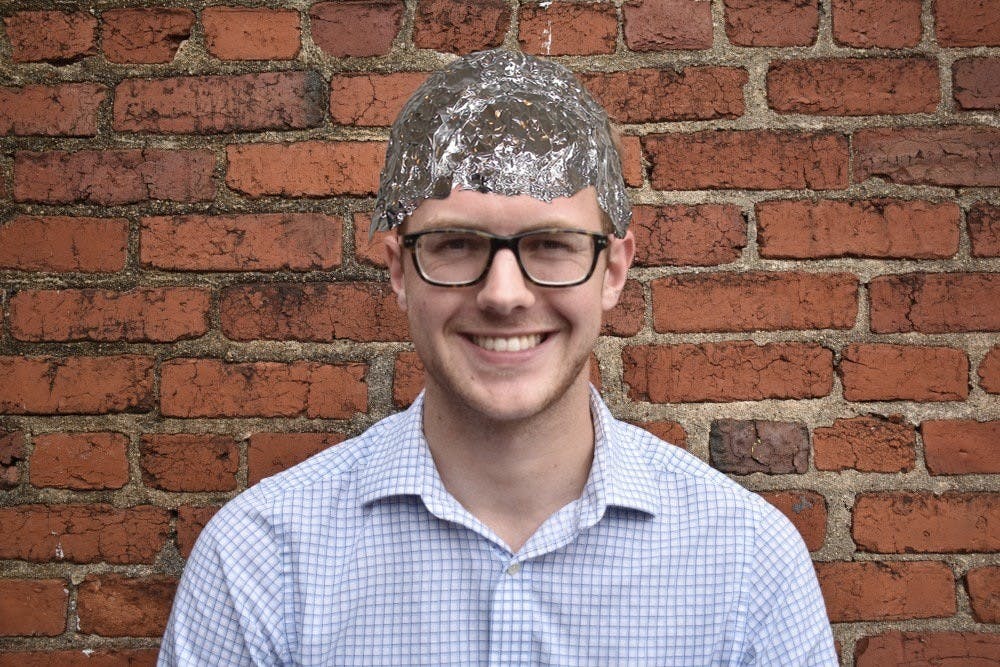Okay folks, strap on your tinfoil hats and hunker down cause it’s time to talk about the rising threat of Big Business and the surveillance state. Now take your tinfoil hats off — really, you actually had one? Weirdo. — because this isn’t some paranoid conspiracy; this is actually happening, and yet we’re barely paying it any attention.
Facebook, Google and other tech giants are watching you and collecting your data. And you should be concerned.
This article was prompted by the 10 Year Challenge that is now in the last throes of virality on Facebook. For those of you who aren’t on the website and have thus avoided seeing the challenge — and being inundated by Minion memes by the middle-aged, you lucky son of a gun — it calls for a picture from 10 years ago run alongside one from present day to show how much you’ve changed. Seems innocent enough, right? Wrong.
In addition to showing off to your friends how much better looking you are now, or used to be, in participating in the challenge, you’ve given Facebook two clear data points: what you looked like ten years ago and what you look like now. And that has serious ramifications for facial recognition technology. Kate O’Neil goes more in-depth on the subject over at Wired, but the long and short is this: the 10 years apart photos can help Facebook’s facial recognition software become more savvy and learn more about how humans age. While the social media website has access to all of your photos already, many people post irregularly or use landscapes, group photos or pets for their profile pics, and photos are often posted out of order or well after they were taken. The 10 Year Challenge provides a better set of information for the software than Facebook’s algorithm could potentially pick out on its own.
While it’s not absolutely certain that this is what Facebook is doing with these pictures, given the company’s interest in facial recognition and history of using, or rather misusing, members’ data, it wouldn’t be a surprise at all. There was the whole Cambridge Analytica debacle, the discovery that Facebook gave third-parties, like Netflix and Spotify, access to users’ messages, and, oh yeah, the somehow barely known fact that Facebook has been mining data from Android users’ text messages and phone calls. Not calls and messages sent from the Messenger app, text messages and phone calls made from the built-in applications on the phone.
Facebook is hardly the sole offender when it comes to collecting data from unwitting users. Google has all but declared open season on your emails for data miners — and even its own employees. MoviePass — RIP, basically, I mean it sucks now — had a business model that didn’t seem to make any sense, until you realize that it was basically a data collecting app posing as a movie ticket seller. And have you ever been talking about something and seen an ad online for it shortly thereafter? Well, your phone is listening to pretty much everything you say, and advertisers are receiving that information, just like how they get your Google search history and your Facebook likes and almost anything else you do online. I, for one, am constantly seeing ads for the writing checking software Grammarly, especially on the Google-owned YouTube — maybe Sundar Pichai is trying to tell me something?
I must confess, I wasn’t especially concerned about data collection for a rather long time. I mean, I’m not very embarrassed if companies know that I regularly Google “why on earth is Harry Potter still popular” and “how to defend yourself from backlash over controversial pop culture opinions.” But the more I’ve thought about how much of our personal information these corporations have such easy access to, the more I’ve become worried about it.
A basic tenant of conservatism — or at least the brand of conservatism I subscribe to — is not to give the government powers you’d be uncomfortable with, or even scared of, if they were in the hands of someone you disagree with. It’s a lesson the left is learning the hard way now, as after eight years of ignoring the executive overreach of President Obama, suddenly liberals are decrying a powerful executive branch because it’s controlled by someone they don’t like.
The same principle applies to tech companies as well. Just because they aren’t necessarily using our data for nefarious ends doesn’t mean that will always be the case. Google, for example, fronts as a very politically correct, very woke company, but it’s also entirely willing to create a censored search engine for the tyrannical Chinese government. The same Google that supported net neutrality because it wanted to “protect the free flow of information” had its engineers design software that blocked search results for subjects like human rights and peaceful protest in the Chinese search engine. Who’s to say that in some dystopic future Google couldn’t make similar alterations to search results for the American government as well?



